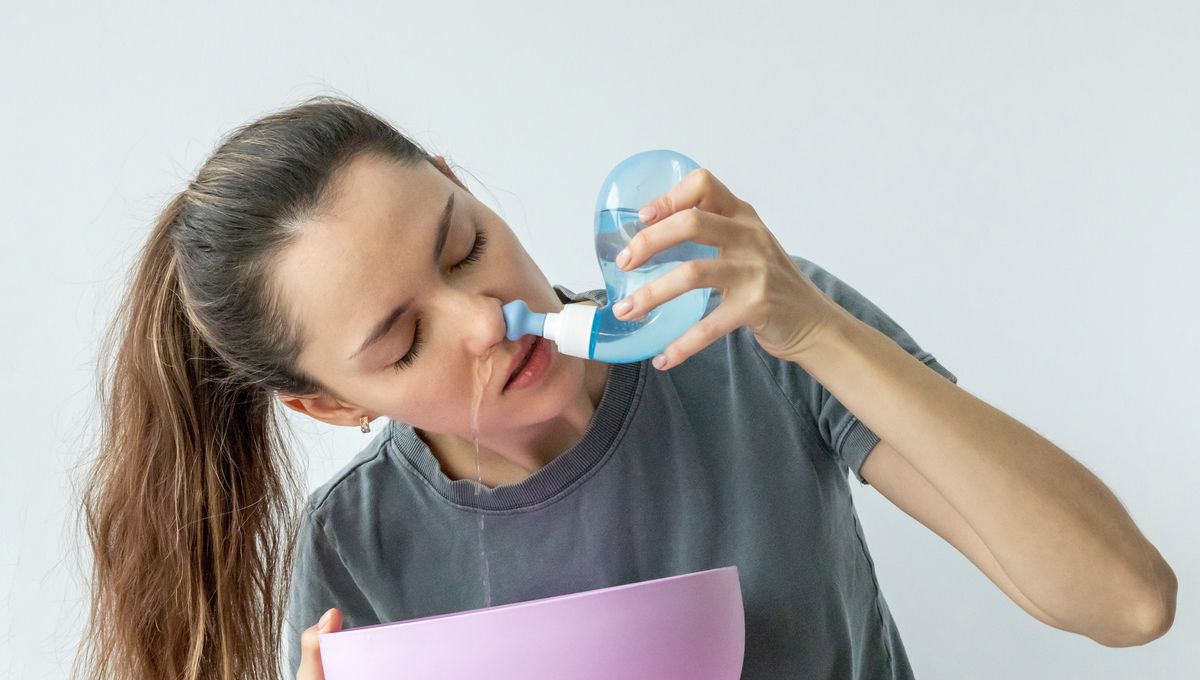
Rinsing out your sinuses can be part of ritual ablution, and might also be useful when you have a blocked nose. However, a new study has illustrated the importance of using sterile liquids to do so, as people using unsterilized tap water can become ill with a rare type of amoeba infection.
Amoeba species like Naegleria fowleri and those in the genus Acanthamoeba are surprisingly prevalent in the environment, found in soil and many sources of water, including from the tap. This can make pinpointing the source of an amoeba infection difficult, and thus, how best to try and prevent them – something that’s pretty important considering how dangerous they can be.
However, researchers from the Centers for Disease Control and Prevention (CDC) think that bringing awareness to safe nasal rinsing could make a suitable target. According to a 2023 study looking at the US population, of 1,004 respondents to a survey, 62 percent thought that tap water is safe for nasal rinsing – despite it not being sterile.
Examining 10 patients infected with rare nonkeratitis Acanthamoeba infections – which are fatal 82 percent of the time – the team found that all had performed nasal rinsing prior to infection, and at least half had used tap water.
Though they couldn’t say definitively that nasal rinsing was the cause of the infections, they suggest that the amoeba may well have been transmitted by it. As a result, the researchers called for increased awareness of carrying out safe nasal rinsing, particularly for people with compromised immune systems – all 10 infected patients were immunocompromised.
The US has also seen infections with Naegleria fowleri, also known as the “brain-eating amoeba”. Described as primary amebic meningoencephalitis or PAM, the amoeba doesn’t technically “eat” the brain, but it does destroy brain tissue, causing initial symptoms similar to bacterial meningitis.
N. fowleri infections are rare – only 29 cases were reported in the US between 2013 to 2022 – but the death rate for the disease is over 97 percent. Again, safe nasal rinsing might become a good target; it’s suspected that a Florida man who died last year after infection with the amoeba had been clearing out his sinuses using unsterilized tap water.
So how do you make nasal rinsing safer?
According to the CDC, “it is safest to use boiled, sterile, or filtered water. If that is not possible, disinfect the water using chlorine; the cloudiness of the water can affect the ability to disinfect the water.”
The study is published in the journal Emerging Infectious Diseases.
Source Link: Rare Amoeba Infections May Have Come From Rinsing Sinuses With Unsterilized Tap Water